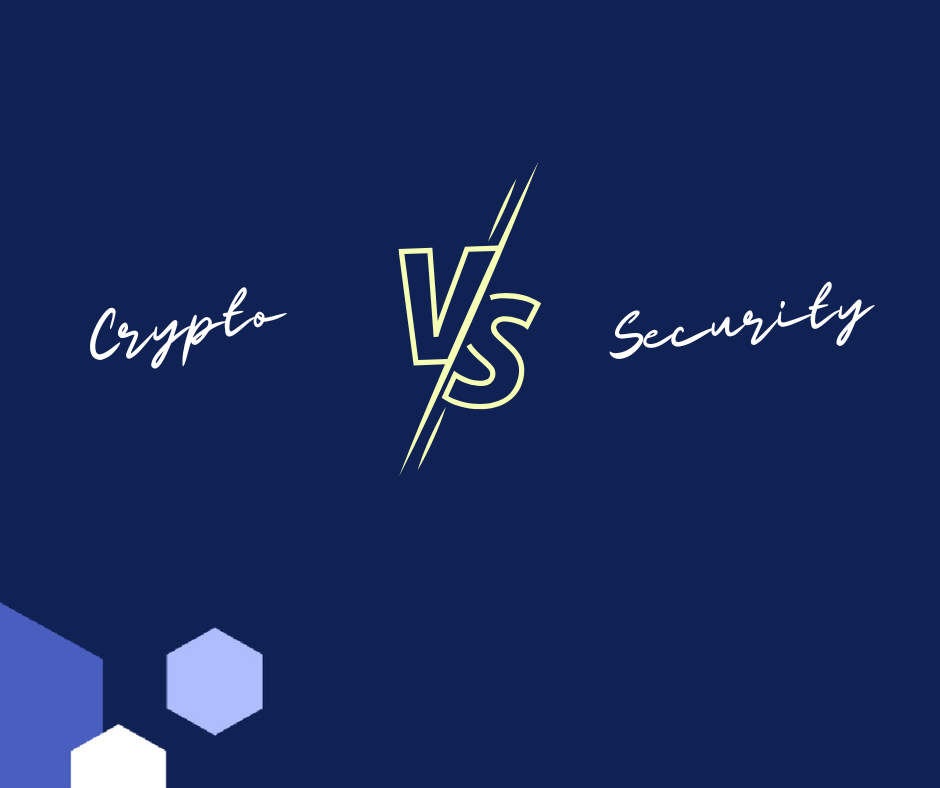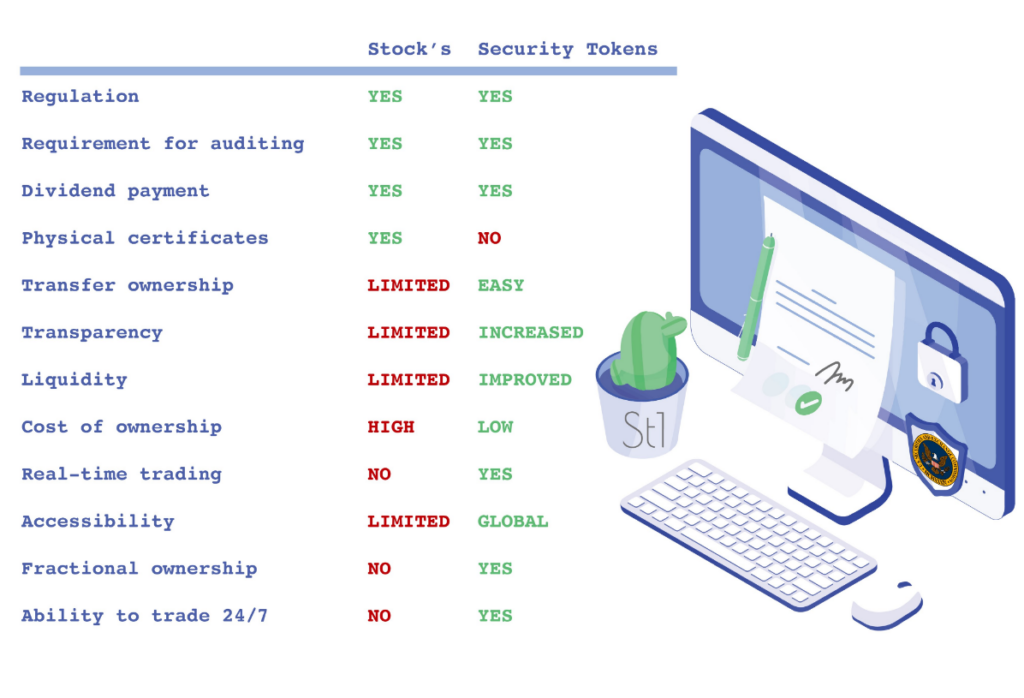What is a Security? Using the Howey Test to Classify Assets
The SEC has previously used the Howey Test, outlined by the U.S. Supreme Court, in deciding whether something is an “investment contract” and, therefore, a security. The Howey test is one of the most important legal precedents in the history of financial regulation. It was created by the Supreme Court in its 1946 decision, SEC v. W. J. Howey Co. The test sets out factors to determine what qualifies as an investment contract, and thus a security:
1) whether there is an investment of money
2) in a common enterprise
3) with a reasonable expectation of profits from the efforts of others.
The test has been used ever since then by courts across the country to determine whether or not an asset or security falls under federal regulations such as those enforced by the Securities Exchange Commission (SEC). In its most simple form, whether something is or isn’t a security under US rules is basically a question of how much it looks like shares issued by a company raising money.

How The SEC Classifies Various Digital Assets
The future of cryptocurrency depends on its classification. If cryptocurrency is defined as a security, it falls under the jurisdiction of the SEC, and is subject to rules on price transparency, greater reporting demands, and market abuse oversight. Interestingly, the SEC does not consider Bitcoin as a security. Rather, the SEC has clearly determined that Bitcoin falls under the category of commodities as it can be considered ‘digital gold.’ Ether, the second largest digital asset by market cap, was also deemed as a commodity by a senior SEC official a few years ago. Yet, SEC Chairman Gary Gensler’s recent comments seem to leave Ethereum’s status up in the air. Ethereum’s recent switch to proof-of-stake, a system whereby validators lock up, or ‘stake’ coins in order to record transactions, could be one reason for the change of heart on the part of the SEC. Proof of Stake networks pay an interest to validators in exchange for their staked coins, a function that the SEC takes into consideration when treating a digital asset as a security.
According to comments made by SEC Chairman Gary Gensler, almost all other crypto assets fall under the securities category. Throughout the lifetime of digital assets, the SEC has preferred to regulate through enforcement. Looking at some of the cases brought by the SEC against crypto companies can give us a better understanding of how the agency views the industry. Here are four cases worth considering.
- Ripple. In December 2020, the SEC sued Ripple Labs Inc., for allegedly raising money by selling the XRP digital token without registering it as a security. The agency claimed that the company was funding its growth by issuing XRP to investors speculating that its value would rise. As the Ripple versus Securities and Exchange Commission (SEC) legal dispute inches closer to a summary judgment, the cryptocurrency industry eagerly awaits the outcome. If the court sides with the SEC, crypto exchanges will face more scrutiny from regulatory agencies and will likely have to register as securities if they continue selling within the U.S.
- LBRY. In November 2022, Judge Peter Barbadoro of the U.S. District Court for the District of New Hampshire granted the SEC’s motion for summary judgment as to whether software company LBRY, Inc. offered tokens (called “LBRY Credits” or “LBC”) in securities transactions. Among other things, Judge Barbadoro ruled that potential investors would understand that “LBRY’s overall messaging … was pitching a speculative value proposition for its digital token,” thus satisfying the expectation-of-profits clause of the Howey test.
- FTX. The agency’s unfolding case against FTX reveals arguments that could further that strategy. The SEC, in its pursuit of securities fraud charges pertaining to FTX’s sale of its native token FTT—appears to be escalating its assault on crypto assets as a whole. The complaint labeled FTT “an illiquid crypto asset security,” making the subtle—but crucial—point that the SEC views FTT as a security in itself, regardless of the manner in which it was offered or sold. By deeming FTT as a security, the SEC has set a precedent for all exchange tokens which can also find themselves potentially running afoul of the agency.
- Paxos. Cryptocurrency firm Paxos announced that it will cease issuing new BUSD stablecoins under the direction of New York state’s financial regulator. The company confirmed it had been notified by the Securities and Exchange Commission of potential charges in connection with its BUSD product. The New York State Department of Financial Services issued the order “as a result of several unresolved issues related to Paxos’ oversight of its relationship with Binance,” the regulator said in a consumer alert.
SEC tightening its enforcement grip
The U.S. Securities and Exchange Commission recently included the regulation of emerging technologies and crypto assets as one of its 2023 priorities. The SEC intends to examine whether crypto companies meet appropriate standards of care when “making recommendations, referrals or providing investment advice.”
The SEC continues to be a main regulator in the cryptocurrency space. Its actions have focused on two allegations:
(1) unregistered securities offerings
(2) fraudulent securities offerings or sales.
The SEC’s apparently increased commitment to resolving digital asset cases through litigation rather than settlement when compared to the general trend across all the agency’s enforcement actions. More scrutiny of market intermediaries, such as exchanges and broker-dealers, rather than issuers or promoters of single tokens. As such, these intermediaries may bear the brunt of any increased enforcement activity.
How INX occupies a unique position in this scenario.
Five years ago, INX entered the crypto space in a unique way. Our goal was to occupy a position in the digital economy where every aspect of their services would be conducted under US regulatory supervision. Today INX is one US regulated hub for trading and investing in cryptocurrencies & security tokens. All transactions are carried out on our proprietary and regulated platform. Both carefully-vetted cryptos and security tokens trade side-by-side on the INX One platform, including the INX token, our native security token that is registered with the SEC.
As traders and investors we recognize, and often welcome, the risks associated with speculating in the financial markets. We have also learned to eliminate risk wherever possible. At this time INX stands alone as being one regulated hub providing its clients with full SEC regulatory protection in every aspect of their trading business. This is the INX WAY!
]]>During a recent Stock Day Podcast, the host, Everett Jolly, interviewed our Deputy CEO & COO. The interview couldn’t be more timely considering the many new developments on the U.S. regulatory front with regards to crypto custody, fraud and the growing efforts to set checks and balances.
During the podcast discussion, Avneri emphasized that a solid regulatory framework is necessary to attract more mainstream investors to the digital asset industry.
Without it, he said, the wild west mentality will persist and larger institutional investors won’t fully participate in the digital finance ecosystem. With that said, however, he sees the landscape changing, especially after the fallout of behemoth crypto exchange, FTX, and the attention now turning to establishing needed guardrails.

Avneri mentioned that the crypto crash and the fall of FTX highlighted the importance of secure and regulated digital finance platforms – something that INX put in place from the very beginning by becoming the first company to get SEC approval to raise capital for its own token, the INX Token, after a long, three-year journey. At this point, it seems that not only is INX not part of the problem, but it holds the solution. Operating with checks and balances, said Avneri, is in our DNA.
The Insumer In A Tokenized Economy
Jolly asked Avneri about the future of the tokenized industry to which he responded that the future is already happening…right now. He believes that the new type of investors, called “Insumers,” want to invest in companies and products with digital assets in a regulated way.
Security tokens, in particular, are a means by which businesses raise capital from interested investors, and the records they carry are immutable and easy for anyone to view—a degree of transparency that makes even traditional equities seem unnecessarily opaque.
Through the use of blockchain technology, security tokens have enabled a new order of magnitude in investing possibilities, including directly interacting with their consumers in ways not previously achievable, while expanding their pool of potential investors. Additionally, this new three-dimensional, mutually beneficial insumer/company relationship can create a sense of community that builds lasting brand loyalty and engaged investors.
A Tokenized Future With New Financial Tools
The Blockchain, and all that comes with it, represents a seismic shift in markets that will drive down transaction costs and create a tidal wave of innovation in finance. As Avneri highlighted, these innovations will benefit issuers and investors in the US and globally.
Avneri mentioned during the podcast that he sees more financial instruments being tokenized in the future, including, especially as the regulatory frameworks (pioneered by INX) evolve with the growth of digital assets – with security tokens leading the way.
Security tokens can be for public companies that are already listed on a traditional exchange, like Nasdaq, to tokenize part of their shares. Tokenization can also be used for issuing digital bonds by government and corporate entities. Additionally, the development, testing and deployment of Central Bank Digital Currency continues to grow.
Digital Assets: A Wealth Of Opportunities
The conversation between Everett Jolly and Itai Avneri was eye-opening to listeners who maybe aren’t as familiar with security tokens and digital assets, and reassuring to those who are but are still skeptical about the future where these assets exist in a safe and regulated environment. The key is that this future exists now thanks to the work of Itai and the team at INX. The company’s vision set the standard others are now using to work with regulators and deploy blockchain-based solutions that continue to move the digital economy forward in a positive way.
]]>What is a security?
A security is any type of financial instrument that holds some tangible monetary value. Any security is only worth what a buyer and seller agree it’s worth. Indeed, most people think of stocks—an equity stake in a publicly traded company—when they think of securities. While stocks are historically the principal example of a security, they are not alone. A bond is a security. As is an exchange-traded fund.
Even within the world of stocks, not all stocks are created equal. Most people think of public stocks that trade on exchanges like the Nasdaq when thinking about stocks. Yet, there are certain securities that are technically considered stocks in companies but are not publicly traded on Nasdaq, NYSE or any other major stock exchanges. These securities can be stocks in companies that raised capital through a registration-exempt offering.
From a legal perspective in the US, a security is defined as any asset that meets the four requirements set out in the Supreme Court ruling on the SEC v. W.J. Howey Co. case in 1946. Known as ‘the Howey Test,’ the ruling determined that a security is any asset which involves:
 An investment of money
An investment of money
 In a common enterprise
In a common enterprise
 An expectation of profits
An expectation of profits
 From the effort of others
From the effort of others
While the Howey Test remains the standard for defining securities in the US, its applicability was challenged by the rise of digital assets, a new class of instruments built on blockchain technology. Nevertheless, the SEC made it clear that no adjustments to the Howey test would be forthcoming for tokens, and token issuers would need to comply with existing securities laws like everybody else.
What is a token?
In the context of blockchain, a token is a digital asset or unit of value that is created and managed using blockchain technology. Tokens can represent a variety of things, such as a specific asset, a share in a company, or a form of cryptocurrency. Not only can tokens represent ownership in an asset of sorts, but they can also function as unique identifiers used for authentication and verification. One of the key advantages of tokens is the fact that they are programmable, allowing for the automation of functions like dividend distribution and voting rights.
Combining the Best of Tokens With the Best of Securities
Security tokens typically function using smart contracts, which are self-executing digital contracts that automatically enforce the terms of the token. These contracts can include provisions for things like dividend payments, voting rights, or even buyback options, and are designed to help ensure that the token operates in a fair and transparent manner.
Central to the smooth functioning of security tokens is a new class of token standards that are purpose-built to comply with regulation. A token standard is basically a set of characteristics that determine how new tokens should be created. Instead of having to create tokens from scratch, developers can adapt a specific token standard for their own use case. In the case of security tokens, the ERC-1404 token standard bakes compliance into the token by making it impossible for someone that has not verified themselves to send or receive the token.
Overall, security tokens offer a new way for investors to access a wide range of assets while also benefiting from blockchain technology’s transparency, security, and efficiency
What is a Security Token Offering (STO)?
Companies looking to raise capital can leverage digital assets by holding a security token offering (STO) in which they offer their token to the investing public. Raising capital through token offerings was first popularized during the Initial coin offerings (ICO) boom as many companies discovered the ease with which they could raise money by issuing tokens to the public. While ICOs
An STO requires a significant amount of pre-compliance preparation. Anyone can start an ICO and participate (unless their local laws say they can’t). However, in order for a company to offer an STO, they need to do it under a valid exemption or regulation so it can then be traded on a regulated platform.
Advantages of a Security Token Offering (STO) Over Traditional Fundraising Methods
- Security tokens enable retail investors to invest in privately-owned companies and assets not listed on public stock exchanges, democratizing finance.
- Security tokens allow firms to launch global STOs, attracting investors from untapped sources and facilitating liquidity for long-dated private markets.
- Fractionalization of securities allows more investors to participate in previously restrictive markets, improving overall depth and level of activity.
- Security tokens introduce instant settlement and 24/7/365 secondary markets, unlocking liquidity and increasing efficiency for investors.
- Programmatic compliance is facilitated by smart contracts built into security tokens, limiting potential fraud and misappropriation of funds by incorporating compliance requirements such as KYC and AML checks, profit sharing, voting rights, and bankruptcy protection clauses.

Introducing Digital Asset Regulation
What separates security tokens from other digital asset classes is the fact that security tokens are subject to various securities law. Around the world, different countries are taking different approaches to regulating security tokens and digital assets in general. In the US, SEC Chairman Gary Gensler believes almost all tokens are considered securities, and therefore must comply with existing regulations, and that only Bitcoin can be considered a commodity that falls outside the SEC’s jurisdiction.
It’s crucial that token issuers consider the regulatory implications of offering a security before launching. According to the law, any company that wants to offer a security must either register for an initial public offering with the SEC, or take advantage of one of the SEC’s registration exemptions. Since the full IPO is too costly and time-consuming for most companies, many choose to go the route of an exemption such as Reg D and Reg S.
A Word on Terminology
A recent op-ed in CoinDesk tried to draw a distinction between security tokens and tokenized securities, a distinction we believe is out of place. According to Noelle Acheson, security tokens refer to crypto tokens with security characteristics, such as revenue share or voting rights, whereas a tokenized security is a digital representation of a classical security, such as stock or bond. In our view, this distinction is unnecessary. Any token that is compliant with securities law can be called both a security token and a tokenized security. In fact, the distinction between revenue-sharing security tokens and tokenized securities, stocks and bonds on the blockchain, overlooks the fact that security tokens combine the best of both traditional finance and blockchain technology. The stocks and bonds of the future are likely to have additional functionality powered by smart contracts, while the tokens of the future are likely to adhere to securities law like stocks and bonds.
Security Tokens The INX Way
Ever since INX issued the first SEC-registered security token in history, we have been heads-down helping businesses launch their own compliant tokens and list them for trading on our US-regulated exchange. From launching your token, to investor due diligence and cap table management, we have everything you need to raise capital through a security token offering.
Discover STOs with us by visiting our Raise page.
]]>